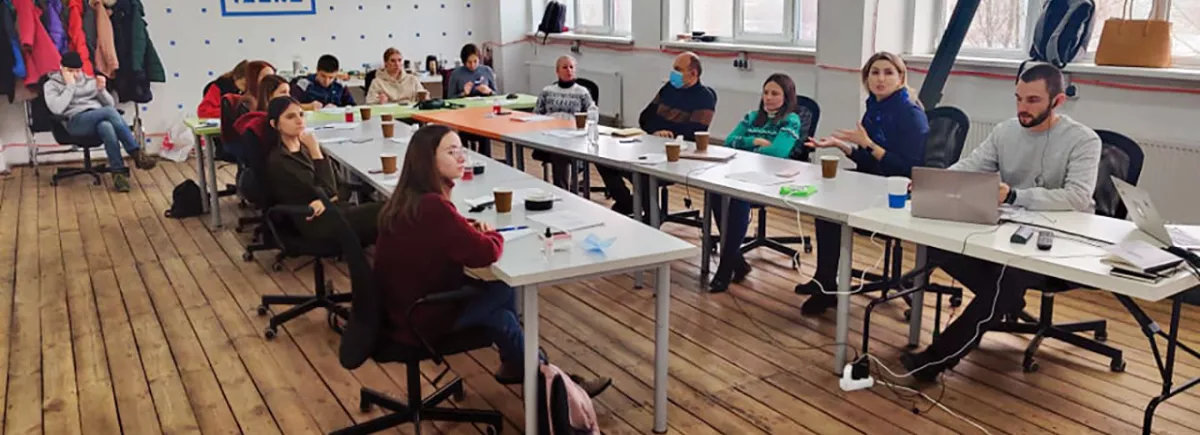
The training program "Justice Journalism" in Ukraine continues
Related project
PRAVO-Justice: the media componentIn late autumn the situation finally allowed to start training in court reporting for the third group of journalists, and at the end of not easy 2020 the two sessions took place in an intensive pace and in a hybrid mode, combining live and online communication.
Online from Paris, Franck Petit (Justiceinfo.net) spoke about the genre, principles and golden rules of judicial reporting, and Timothée Boutry (the daily newspaper Le Parisien) simply and sincerely presented this genre as art and shared his work practices with litigants, victims, police and "own sources". There was also a discussion about maintaining a balance of "hard and soft information", i.e. accurate facts and human history, to create really interesting and lively publications.
Serhii Andrushko (Radio Svoboda) and Iryna Salii (Sud Reporter), in their turn, highlighted the challenges and issues that journalists face, began working with terminology and understanding of the stages of criminal proceedings, shared practical experience and advice that participants will definitely need while preparing their own materials.
“It seems as if you knew a lot about justice journalism, but you come to the training and realize that you knew a small percentage”, the participant Daryna Kolomiiets says. “I really enjoyed when the coaches talked about the problems and obstacles they encountered during the work and how they came out of them. For example, when Iryna Salii shared a story how she could not get a comment from a person for a long time, and then she just came to the meeting where that person was a witness and wrote down her words. But what I like most is how we are taught to deal with laws and to look for topics. In my opinion, these are some of the basic skills that a journalist must master”.
“Just being a good journalist is not enough”
During the second session Thierry Cruvellier (Justiceinfo.net) opened up the issue of war crimes justice and international tribunals as well as transitional justice that becomes more and more actual topic for Ukraine which has the wounds concerning Maidan revolution, occupation in Crimea and Donbas. Oksana Maksimeniuk joined the event and shared many details and advice on media law and court reporting, being a Ukrainian lawyer and knowing the judicial system from inside.
Iryna Salii underlines: “According to my observations, participants from the regions are not inferior to colleagues from Kyiv. On the contrary, they can prove themselves a lot more. This time, when selecting candidates, I preferred those who had experience working with the courts, at least minimal. Just being a good journalist is not enough. It's not that a good journalist just wants to work in the genre of court chronicles. And that he/she generally understands what it is and how it differs from today's popular investigations or social reports. It seems to me that the approach has paid off and we have managed to attract participants who can do exactly what is expected of them”.
t is very gratifying that most journalists represent the regions of Ukraine, which means that the knowledge gained through the program "Justice Journalism" will be applied in different parts of the country, and society will learn more interesting from the courtrooms not only in the capital, but also about the judiciary and its impact on the lives of ordinary citizens.


